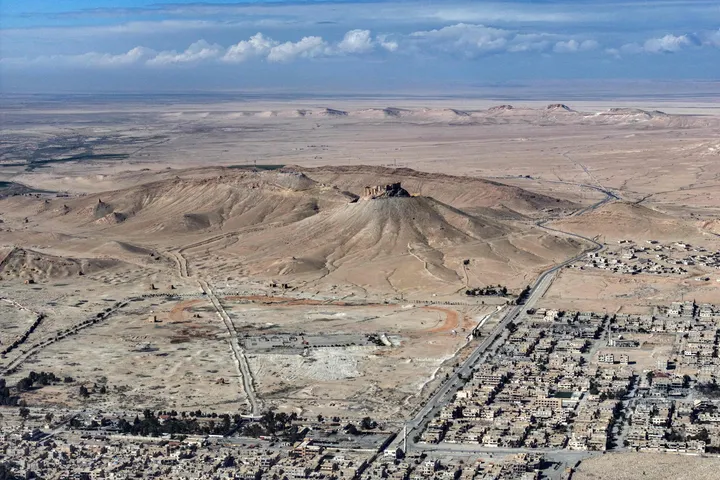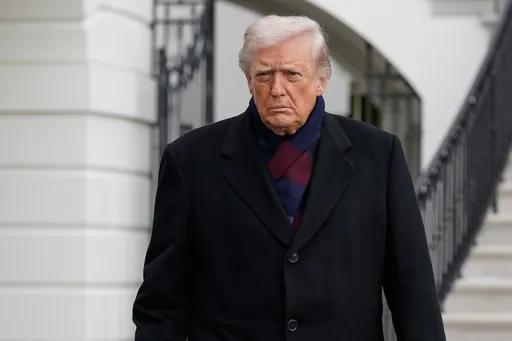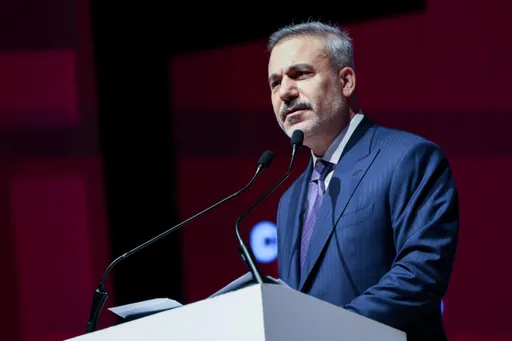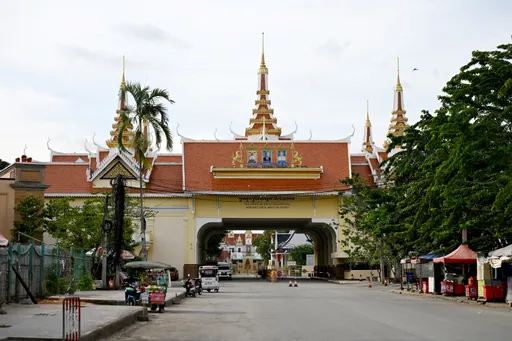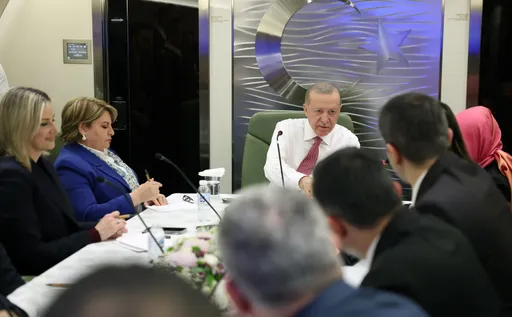IBADAN, Nigeria — Every day, at exactly 5am, the loudspeakers blare with a Muslim call for prayer from a distant minaret, filtering into my bedroom even before the sunlight nibbles through my curtains.
Years ago, I'd have been irritated by the pre-dawn religious call but nowadays I find the voice of the Muezzin as melodious as chirping birds and crowing roosters. Not wanting to be outdone, just as soon as the Muezzin completes his daily round, a Pentecostal proselyte begins preaching the good news of the gospel, the sermon rhythmically being punctuated by a clanging bell — one of the signature "trademarks" of Christendom in Nigeria.
Nigerians are deeply religious. According to Pew Center estimates, nine out of ten Nigerians profess strong belief in Islam or Christianity, the two leading faiths in Africa's most populous country. Although the constitution claims the state is secular, the government — in a bid to maintain support from its predominantly conservative religious base — still sponsors citizens for annual pilgrimage to Mecca and Jerusalem, despite repeated calls to defund such programmes, especially with the country sinking ever further into its worst recession in 25 years.
But our appreciation for the spiritual goes beyond sacred beliefs and yearly rituals. We spend lots of money on faith as well. In fact, the current wave of Pentecostalism in Nigeria was inspired by the prosperity doctrines of American evangelicals who believe God enriches the generous with material wealth. This explains the relentless sermonising by clergymen on the payment of tithes and offerings, as such donations continue to be the cornerstone of Church economy.
"Honestly, I have never paid taxes on my income," says Tope Shaba, pastor of The Baptising Church, a Christian denomination based in Nigeria's capital city, Abuja.
Shaba's views on the tithe, however, are quite non-conformist among Nigeria's religious community. He believes that the tithe system should be based on a church's particular needs as opposed to an obligatory levy Christians are supposed to pay as per popular belief. A tenth of one's personal income goes to church as tithe. The practice is prevalent among many modern Christian worshippers and is rooted in Judaism — the forerunner of Christianity.
In lieu of following such orthodox norms, he says that members of his own congregation are free to decide how much they wish to donate as tithe.
"We have believers who don't believe in paying tithes," he says. "I'm one of those who believe that tithing is not mandated in the New Testament of the Holy Scriptures."
Shaba comes across as man who's tired of what he perceives to be the lack of accountability that's rampant in Nigeria's religious establishment.
"I have recently taken steps to obtain my tax identification number [TIN]," he says.
Shaba says he evaded taxes because he earns a "terribly low" salary and the thought of complicated filing procedures as well as the absence of an effective government-run database for taxpayers discouraged him further.
Of late, the practice of paying tithe while dodging tax has drawn some public condemnation. Yemi Ajala, an online editor at Rock City FM in Abeokuta, recently stirred controversy with a tweet: "Most Nigerians will rather tithe than pay taxes. That's why we have mega churches on shitty roads."
Ajala's online rebuke also pointed at the common practice of selling large tracts of land along the Lagos-Ibadan Expressway in Ogun State, Nigeria's busiest interstate highway, to religious organisations. The concentration of these faith groups on that stretch of the highway regularly results in traffic jams, which raise safety and security concerns.
The causes of Nigeria's shrinking tax base can be found in its political economy. Following independence from British colonisation in 1960, the economy has been based overwhelmingly on petrodollars. The country soon became ridden by the proverbial Dutch disease that decimated incomes from commercial agriculture and manufacturing jobs. Once a leading exporter of cash crops like oil palm, groundnut and cocoa, the crude oil boom of the 1970s radically transformed the country into a net importer of consumer products and services, ranging from toothpicks and luxury sedans to Ivy League professionals and, more recently, Chinese construction expatriates.
The over-reliance on crude sales for budgetary expenditure by the military juntas that ruled Nigeria until 1999 (when democratic rule was reinstated) also ensured a gradual loss of the tax base. As a result, the informal economy ballooned. Last year, slightly over ten million people were registered for personal income tax purposes, according to the Joint Tax Board (JTB), the agency saddled with tax administration in Nigeria. In a country where the real size of the national labour force is 77 million, this puts Nigerians within the tax net at a meagre 13 percent.
Corruption permeates every segment of society, and Nigerians are very wary of their taxes ending up in offshore accounts or as stately mansions in exotic cities abroad.
Adamu Abubakar, a journalist from Kano in the Muslim-majority Northwest region, has also not paid income taxes since he became a freelancer in 2014. He entered the workforce about seven years ago.
"I can't remember, to be honest, when last I paid my income tax," Abubakar laughs when I interviewed him. "If I ever paid, it must have been deducted by my past employer."
Abubakar's uncertainty is far from being peculiar. Alex Ozegbe, who works for an educational consultancy in Benin, some 360 kilometres from Abuja, also has little knowledge of his tax payments. He says his employer files his taxes on his behalf but he has never received a tax certificate or receipt. He also has no TIN. This situation leaves room for fraud by tax collectors and lack of accountability by the government. But Ozegbe still believes that it is the civic responsibility of Nigerians to pay taxes regardless of what becomes of such public funds.
"Two wrongs don't make a right. I'd rather pay tax than not even though [the money] may be misused or embezzled," Ozegbe, who's in his mid-twenties, says.
Though Ozegbe has grown disillusioned with the government's taxing system, he is quite generous when it comes to supporting the Church. "I do pay ten percent of my salary to my church," Ozegbe says. "In fact, I always pay tithe on any income and even on cash gifts I receive."
Giving money for religious causes is not confined to Christians alone. Muslims open their purses for charitable purposes, too. In Islamic societies, people — especially adults whose wealth exceed a prescribed threshold — are obliged to pay an annual levy called Zakat. The rate is set at 2.5 percent on most financial assets.
"Zakah [Zakat] is one of the five pillars of Islam," explains Muhammad Aliyu Dahiru, a researcher at the International Institute of Islamic Banking and Finance, Bayero University in Kano. "Zakah is also one of the social security systems in Islam that the rich can use to aid the poor. It has spiritual as well as socioeconomic benefits."
Although the concept of Zakat is quite noble, Dahiru says that citizens should not use it as an excuse to evade taxes. Rather, he believes Zakat should be deployed to complement taxes in cases where the needs of vulnerable people are yet to be met.
In several Muslim-majority countries such as Malaysia, the government has established resilient systems that allow people who pay Zakat to obtain tax rebates. But Nigeria has never introduced such a system. Even in Nigerian states like Sokoto and Zamfara, where local Zakat commissions have been instituted, the rates of compliance are still terribly low.
The level of participation by the private sector is also minimal. Even though the country has one of the world's largest Muslim populations, Jaiz Bank is the only one Islamic bank that currently operates in a potential market of almost 85 million Muslim customers.
"Public-private collaboration can improve Zakah collection and investment," Dahiru adds. "It might be the only way to bring more people into the tax net."




